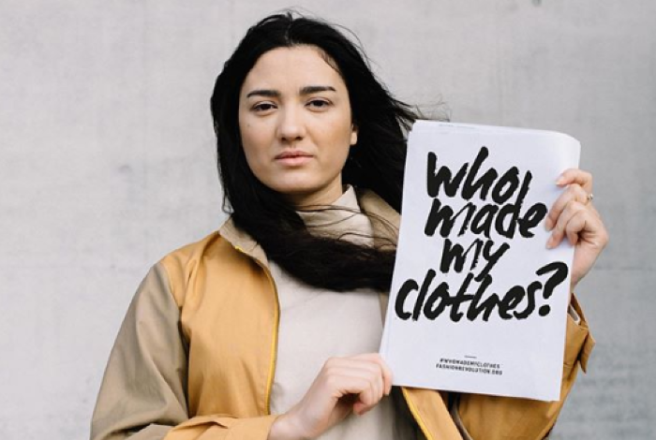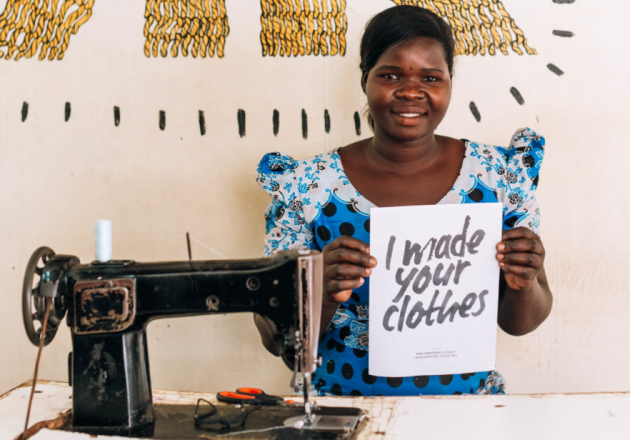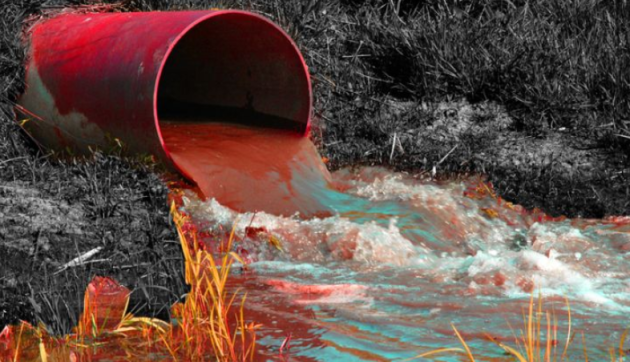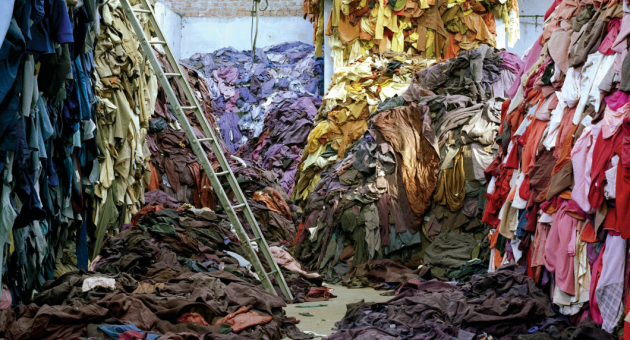
Eco-fashion: Our sustainable survival guide for ethical shopping
With all the conversations regarding the decrepit state of our planet, it's no surprise that the terms 'ethical fashion' and 'sustainable clothing' are coming up again and again.
Whether it's the depressing lack of labour rights which garment workers possess, or the untold amount of damage a simple white t-shirt can do to the earth; it's time to get serious about the disastrous environmental impact of fashion.
Fact Attack
1. The truth of the matter is: the fashion industry is the second largest polluter in the world, second only to the oil industry.
Unfortunately, developing countries are constantly the ones to suffer from developed nations and their materialistic consumerist culture. While high street shops have lower pricing, it's important to ask ourselves why this is so.
Normally, it's because the cost of production is incredibly cheap, and the workers aren't being paid in equity.
For example, according to Stephen Leahy of The Guardian, 100 million people in India don't have access to drinking water. However, 85 percent of the daily needs of the entire population of India would be provided by the water used to grow the country's cotton.
The same cotton that goes into making our clothes, the clothes of people who have always had access to daily needs like drinking water. So the question is, who really pays the price for our clothing?
Fast fashion is a hugely feminist issue seeing as women in these underdeveloped countries are paid less than men for working in these garment factories.
The number of workplace injuries and deaths in factories in China, Vietnam, Bangladesh, India and Cambodia are still shockingly high.

Now, this article isn't intended to guilt or shame anyone. It's just a wake-up call, and knowing the facts of this vital topic can lead to change. Change can lead to less harm on the planet, and isn't that always a good thing?
2. First of all, it's important to know that the untreated toxic waste-waters from textile factories are often dumped directly into the rivers of countries where clothes are made.
These waste-waters contain toxic substances like arsenic, mercury and lead, which kill the aquatic life and health of millions living by that same river. Contamination reaches the sea and spreads globally.
The use of fertilizers for cotton production heavily pollute waters, another danger of creating just a single item of clothing for brands we all know and buy from.

3. Clothing in our culture has become disposable, and more and more textile waste is accumulating as a result. According to Elizabeth Cline of The Atlantic, a family in the 'western world' throws away an average of 30kg of clothing every year.
4. Only 15 percent of this is recycled or donated, and what happens to the rest? Landfill or incineration.
What's worse, synthetic fibres like polyester are plastic fibres, and can take up to 200 years to decompose.
Global textiles production emits 1.2 billion tonnes of greenhouse gases every single year. That's more than international flights and maritime shipping put together, according to Fashion Revolution.
5. These biodegradable synthetic fibres are used in a shocking 72 percent of our clothing.
6. The UK population has £10.5 billion worth of unworn clothes in their closet, according to recent research. It's massively valuable to donate your unworn clothes rather than throw them away. Every item of apparel has a history, and can tell a story.
Fast fashion is having an unparalleled influence on the planet, with more and more clothes being incinerated into the air every year.
Workers are suffering in poverty to make our clothes, and we have no idea who they even are. We have a responsibility to bring ethics into what we wear and how we style ourselves.
The issue may seem far away, but we can't ignore the problem any longer.
Clothing is a basic human need, give someone else the chance to wear the clothes you don't want anymore.
6. The apparel industry accounts for 10 percent of global carbon emissions, because our clothes are made in countries which power their factories with coal.
This means our synthetic fibres are basically made from fossil fuel, hence why it's so important to buy clothes with natural fibres.

Here's our survival guide for ethical shopping and sustainable fashion, but remember: Nobody's perfect.
Even if you reduce your buying habits a tiny bit, or change one of your high street shops to an ethical brand, that's great. Just do your best; if everyone did a little, it would mean a lot.
Swap Shops
The Nu. Wardrobe is an Irish female-led startup company focusing on dramatically reducing fashion waste by encouraging the swapping or renting of clothes. Their tag-line is 'Look Good. Save Money. Reduce Waste.'
Right on, gals. Extending the life cycle of clothes is hugely important in the fight against fast fashion.
Why not borrow an outfit from a friend or sibling instead of buying something entirely new when you probably don't need to?
Of course, it's important to treat yourself every now and again, and we all need new threads every once and a while when our body sizes change etc, but just remember to ask yourself every time: Do I really need this?
Charity shopping/Vintage outlets
Dun Laoghaire's main street contains some great charity shops like Bernardos, Oxfam, Age Action, Goodwill and more.
George's Street in the city centre also have a great selection of charity shops with the proceeds going to St. Vincent de Paul, Oxfam and Enable Ireland.
The array of vintage shops in Dublin is not to be understated. Head to Dublin Vintage Factory (there are two shops) in Temple Bar for the cheapest but best selection of vintage clothing.
Vintage has emerged onto the scene even more in recent years, and has undoubtedly become one of the biggest trends in Dublin fashion.
Why not buy something no one else could possibly have? Pre-owned and pre-loved.
Other options include; Tola Vintage, Nine Crows, Lucy's Lounge, Monto, The Harlequin, Folkster, Tahiti Vintage, Om Diva, The Cat's Meow, Siopaella and Retro in George's Street Arcade and Temple Bar.
Apps: Depop/Good On You
Depop has become our addiction in recent months. The app is a clothes-selling platform, basically a digital swap shop, and the range of fashion styles involved is incredible.
Shipping from all over the world, the items are totally unique. You'll see some amazing style trends as well, and the app allows you to refine your searches for uber specific items and brands.
From vintage sportswear brands to quirky 1990s-era fashion pieces, don't miss out.
It's a great feeling knowing that you aren't buying brand new clothes all the time, and the app allows you to make some $ cash dollah $ by selling all of the clothes you haven't worn since your teenage disco days.
We first heard about Good On You from none other than Emma Watson. If she models and endorses them, they have to be sheer excellence.
The app allows you to inform yourself all about the workers rights and sustainability of your favourite brands.
They offer great suggestions for ethical and sustainable brands too, and it's practical and easy to use.
Our favourite ethical/sustainable brands
Finding sustainable clothing for an affordable price can be challenging in Ireland, mainly because of shipping charges.
It's a huge comfort to know that you're paying for clothing made by people who have workers rights, and that they are high-quality. Here are some of our all-time fave brands:
Reformation
Weekday
People Tree
Oxfam
Thought
Fame and Partners
Ilk + Ernie
Ninety Percent
Other gorgeous favourites include: Base Range, Etica, Everlane, Uniqlo, Exhibit, Komodo, Patagonia, Athleta, Petra Von Kant, Lara Intimates, Mayamiko, Thoreau, Boyish and ASOS Made in Kenya
Last but not least, we recommend watching The True Cost on Netflix, it pulls back the curtain on fast fashion and the developing world. It's time to wear your values.
Feature image: Instagram/@cheriebirkner/@sustainablefashionmatterz






